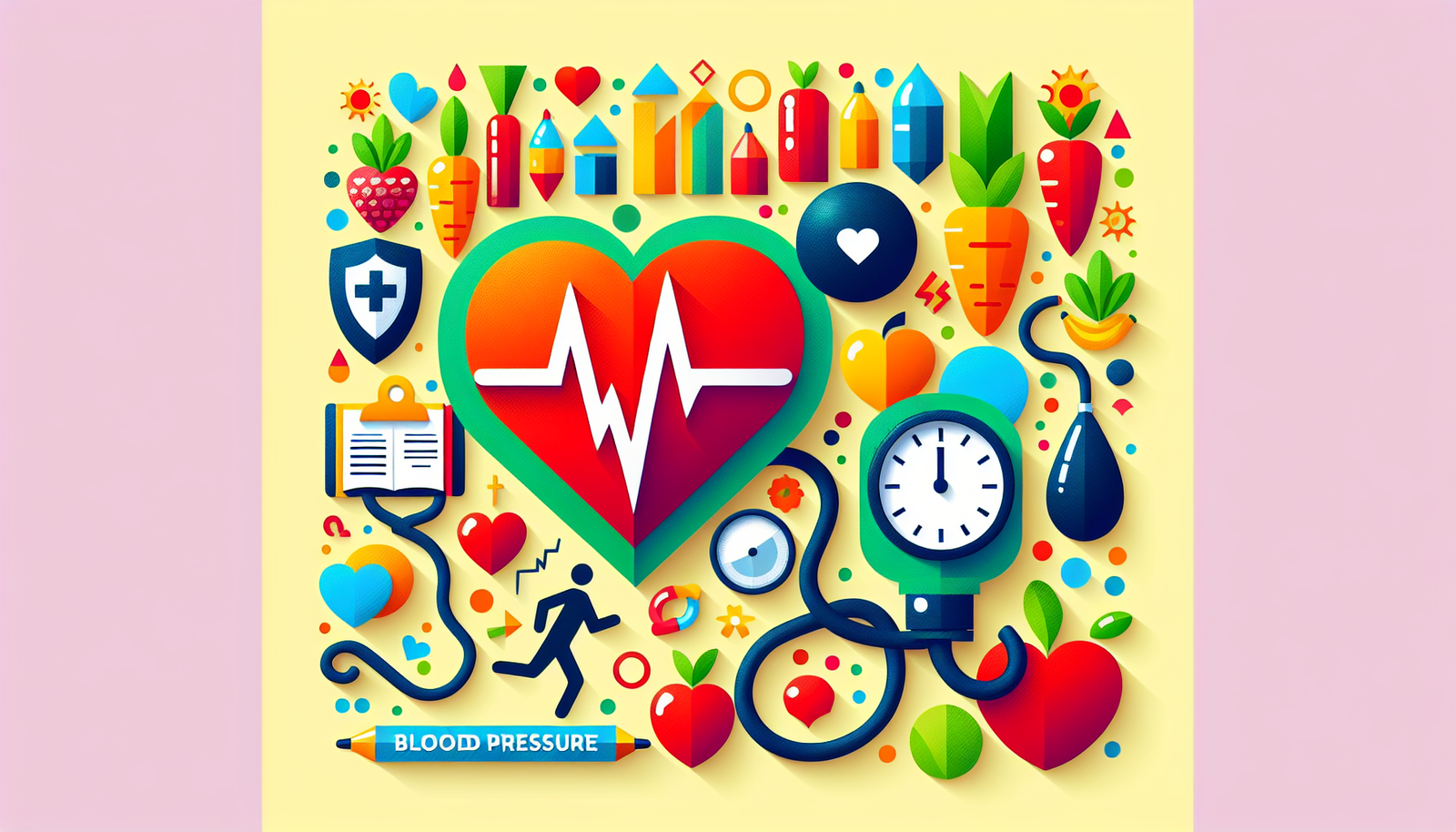How Stress Affects Your Heart Health
How Stress Affects Your Heart Health
Understanding Stress and Its Mechanisms
Stress is a natural reaction of the body to perceived threats or challenges. It triggers a complex biological response involving the brain, hormones, and the nervous system. The hypothalamus releases stress hormones such as adrenaline and cortisol, which prepare the body to react swiftly in emergencies, a process termed the "fight or flight" response. While this response may benefit short-term challenges, chronic stress can be detrimental, especially to heart health.
Types of Stress
Acute Stress
Acute stress is short-term and often arises from specific challenges like deadlines, presentations, or unexpected life events. Although the body can handle acute stress without significant harm, severe instances may lead to temporary spikes in heart rate and blood pressure.
Chronic Stress
Chronic stress is prolonged and can persist for months or even years. It may stem from ongoing life situations such as work pressure, relationship issues, or financial difficulties. Chronic stress is particularly harmful as it can lead to persistent changes in heart health and overall well-being.
The Biochemical Impact of Stress on the Heart
Hormonal Effects
Chronic stress leads to elevated levels of cortisol, which, over time, can contribute to various heart-related issues:
-
Increased Blood Pressure: Cortisol can raise blood pressure by causing blood vessels to constrict, increasing the workload on the heart.
- Inflammation: Prolonged elevated cortisol levels can promote inflammation, leading to arterial damage and a greater risk of heart disease.
Heart Rate Variability
Stress can lead to a decrease in heart rate variability (HRV), which is the variation in time between successive heartbeats. Low HRV is associated with a greater risk of cardiovascular issues, as it reflects reduced resilience to stress.
Stress-Induced Lifestyle Changes
Chronic stress often leads to negative lifestyle habits that can further exacerbate heart health issues:
Poor Diet
Stress may cause individuals to seek comfort in unhealthy foods, high in sugar and saturated fats, which can lead to weight gain and increased cholesterol levels, both risk factors for heart disease.
Physical Inactivity
People under chronic stress may find it challenging to engage in regular physical activity. Sedentary lifestyles contribute to weight gain, higher cholesterol levels, and diminished overall cardiovascular health.
Smoking and Alcohol Consumption
Stress can lead some individuals to turn to smoking or increased alcohol consumption as coping mechanisms. Both behaviors significantly increase the risk of developing heart-related issues.
Psychological Effects of Stress
Anxiety and Depression
The psychological effects of stress, such as anxiety and depression, can also have a detrimental impact on heart health. Studies indicate that those suffering from anxiety or depression are at a higher risk of developing heart disease. These mental health issues can also reduce the likelihood of maintaining healthy lifestyle choices, creating a vicious cycle.
Sleep Disturbances
Chronic stress can lead to difficulties with sleep, contributing to severe fatigue and disruption of the body’s natural healing processes. Insufficient sleep is linked to increased risks of hypertension, obesity, and cardiovascular diseases.
The Connection Between Stress and Heart Disease
Research strongly supports a link between stress and an increased risk of heart disease:
Stress and Coronary Heart Disease
Studies show that individuals experiencing high levels of chronic stress are at a significantly higher risk for coronary heart disease. Stress might lead to the development of atherosclerosis—narrowing and hardening of the arteries—thus increasing the risk of heart attacks.
Heart Attack Risk
The mental strain of chronic stress can provoke physiological changes that trigger a heart attack. Research shows that individuals under high stress may experience sudden changes in blood pressure, heart rhythm alterations, or even increased cardiac workload, all contributing to a heightened risk of cardiac events.
Other Cardiovascular Conditions
Chronic stress has also been linked to other cardiovascular conditions, including heart failure and strokes. By impacting blood vessel function and promoting unhealthy habits, prolonged stress can have lasting negative effects on overall cardiovascular health.
Managing Stress for Better Heart Health
Stress-Reduction Techniques
Implementing stress-reduction techniques can significantly improve heart health and enhance overall well-being:
-
Mindfulness and Meditation: Practicing mindfulness or meditation can lower stress levels and improve HRV, benefiting heart health.
-
Physical Activity: Engaging in regular physical exercise can help manage stress effectively, improve mood, and promote cardiovascular health.
-
Healthy Diet: Maintaining a healthy, balanced diet rich in fruits, vegetables, whole grains, and healthy fats can counteract some negative effects of stress.
-
Social Support: Building strong social connections can provide emotional support and buffer against stress.
- Professional Help: Seeking guidance from mental health professionals can help individuals tackle chronic stress, anxiety, or depression effectively.
Regular Health Check-ups
Routine check-ups with healthcare providers can lead to early detection of stress-related heart risks. Monitoring blood pressure, cholesterol levels, and overall cardiovascular fitness can facilitate timely interventions.
The Role of Sleep in Heart Health
Sleep is critical for heart health, and managing stress plays a significant role in improving sleep quality. Key aspects include:
Sleep Hygiene
Creating a healthy sleep environment—dark, quiet, and cool—can help individuals achieve better sleep quality. Limiting screen time before bed and establishing a consistent sleep routine can also aid in improving sleep patterns.
Stress Management Before Sleep
Incorporating relaxation techniques like deep breathing or gentle yoga before bedtime can help mitigate stress and promote restful sleep, significantly benefiting heart health.
Dietary Considerations for Stress Management
Nutritional Psychology
The link between nutrition and mental health has gained attention in recent years. Foods rich in omega-3 fatty acids, antioxidants, and vitamins play significant roles in managing stress and promoting heart health. Incorporating foods such as fatty fish, nuts, and leafy greens can facilitate better cardiovascular outcomes.
Hydration
Proper hydration is often overlooked but is crucial for overall health. Dehydration can aggravate stress response, impacting mood and cardiovascular health. Drinking sufficient water throughout the day can help alleviate some stress-related symptoms.
The Impact of Chronic Stress on Blood Vessels
Vascular Endothelial Function
Chronic stress can impair the function of endothelial cells lining blood vessels, which is vital for maintaining vascular health. Poor endothelial function increases the risk of atherosclerosis and subsequent heart disease.
Increased Clotting Risk
Stress can increase thrombosis risk by enhancing platelet aggregation, leading to a greater tendency for blood clot formation—this particularly elevates the risk of myocardial infarction and stroke.
Long-Term Health Consequences of Stress on the Heart
The long-term effects of chronic stress pose significant risks to heart health. Some of these consequences include:
Hypertension
Chronic stress can contribute to sustained increases in blood pressure, leading to hypertension, a significant risk factor for heart disease.
Heart Failure
Continuous stress levels can lead to weakening of the heart muscle, increasing the risk for heart failure over time.
Cardiovascular Events
Chronic stress is associated with a heightened rate of various cardiovascular events, including heart attacks—making its management essential for heart health.
Conclusion and Insights
While the content may not include a formal conclusion, the discussion of stress and its impact on heart health emphasizes the need for awareness and proactive management.
Understanding the relationship between stress and heart health presents an opportunity for individuals to adopt a holistic approach to improve their overall well-being. By incorporating healthy coping strategies, nurturing social connections, maintaining a balanced diet, and ensuring regular health check-ups, individuals can mitigate the risks posed by chronic stress, paving the way for a healthier heart and a fuller life.








